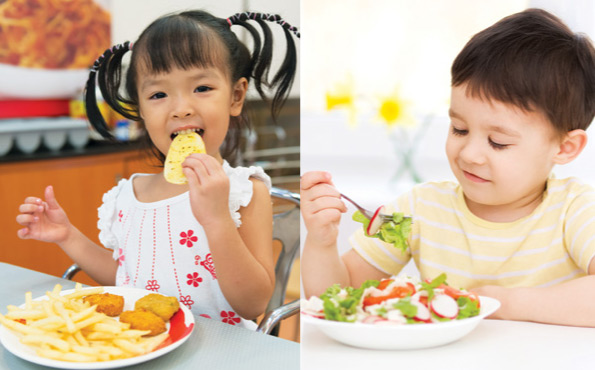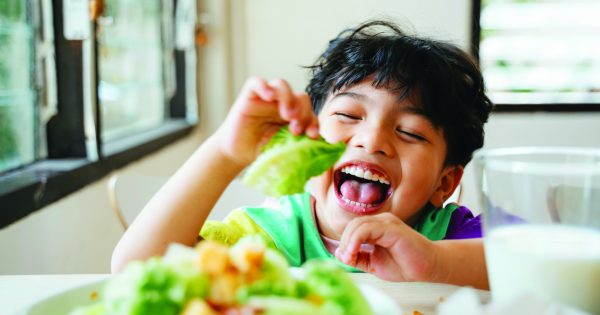Children with bad eating habits are more likely to become over- or underweight. Today, it appears to become an increasingly common practise. Poor dietary habits often stem from excessive intake of energy and/or an inadequate intake of micronutrients. Although bad eating habits may be just part of the cause, it contributes significantly towards risk of obesity and malnutrition. This can set the stage for more adverse health problems (e.g. heart & liver disease) especially if poor dietary habit prolongs into adulthood.
BAD HABITS

- Overconsumption of foods high in sugar, fat and salt.
- Eating unhealthy snacks.
- Eating when not hungry.
- Refusal to eat vegetables or fruits.
- Eating too fast.
- Being picky eaters (eating a limited diet).
- Eating while watching TV, playing video/PC games, etc.
- Overeating & comfort eating.
- Drinking too much sugary drinks.
- Skipping breakfast and eating at irregular hours.
GOOD HABITS

- Chew your food for at least 10 seconds before swallowing.
- Pack a homemade lunch/breakfast for school, make sure it includes a nutritious snack (e.g cut fruits, plain or oat biscuits).
- Eat slowly, it takes a few minutes for the brain to realize the stomach is full.
- Drink a glass of water or have a bowl of soup to avoid overeating.
- Schedule your meal times/eat on time.
- Get more fibre (e.g whole grains and legumes).
- Eat smaller meal portions.
- Drink more H2O.
- Eat a variety of food types per meal.
- Choose foods that are steamed, braised or grilled instead of deep fried.
WHAT PARENTS CAN DO

- Be a good role model, practise good eating habits & prepare healthier foods.
- Don’t make eating out or ordering outside food into a habit.
- Start encouraging healthy eating from young.
- Eat together as a family as often as you can.
- Avoid giving treats or promising food as a reward.
- Don’t pressure your child to eat something they don’t like, gradually wean them into it.
- Play more, move more, be active together!






Comments